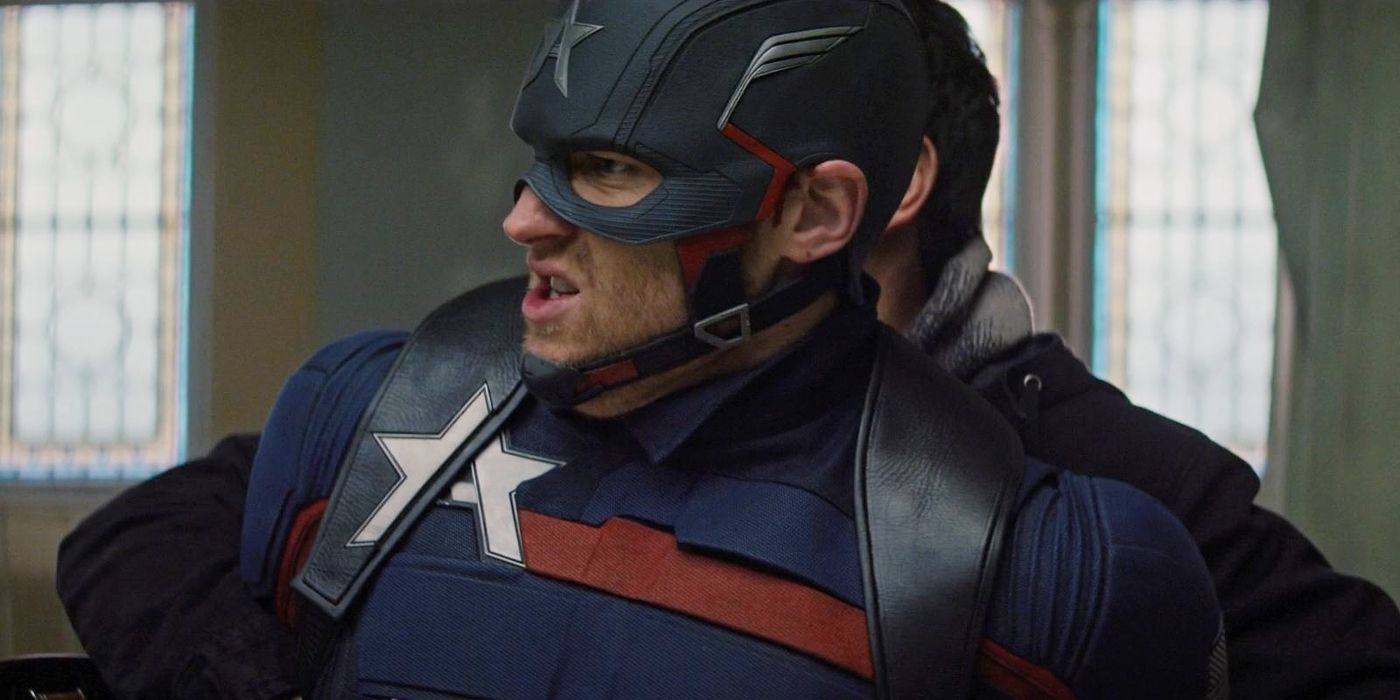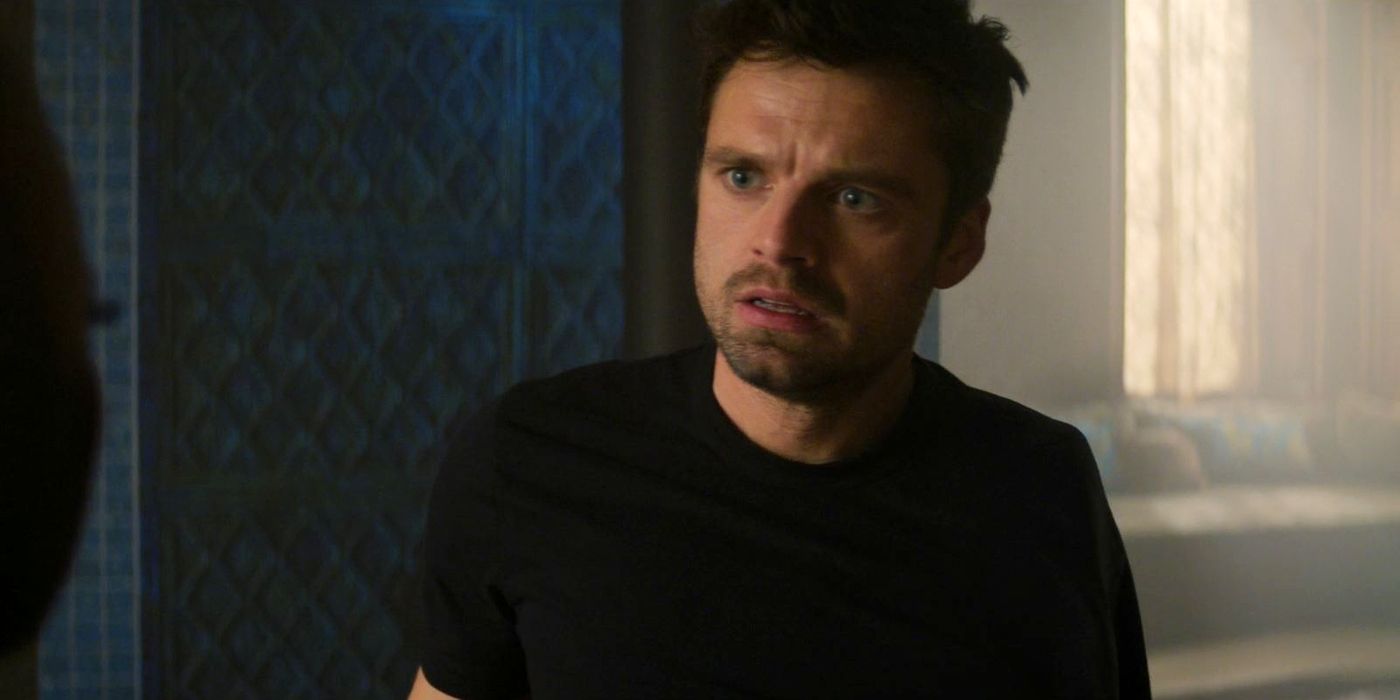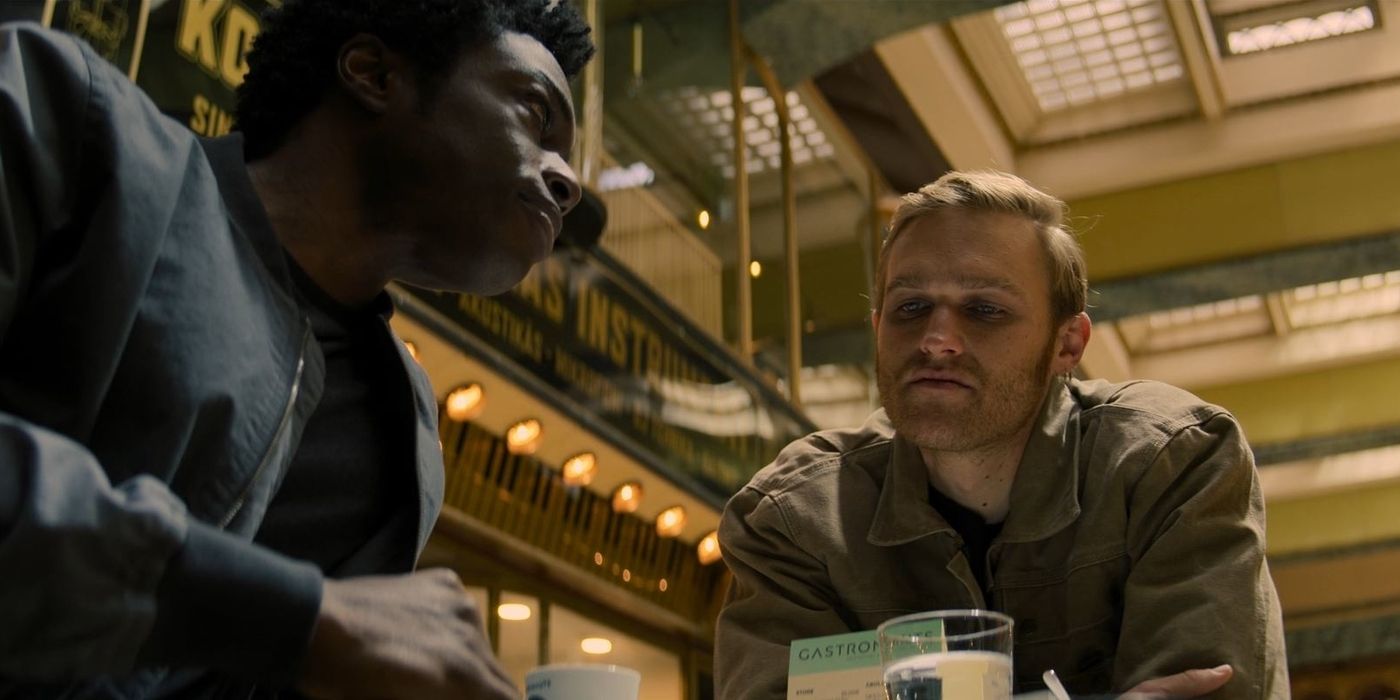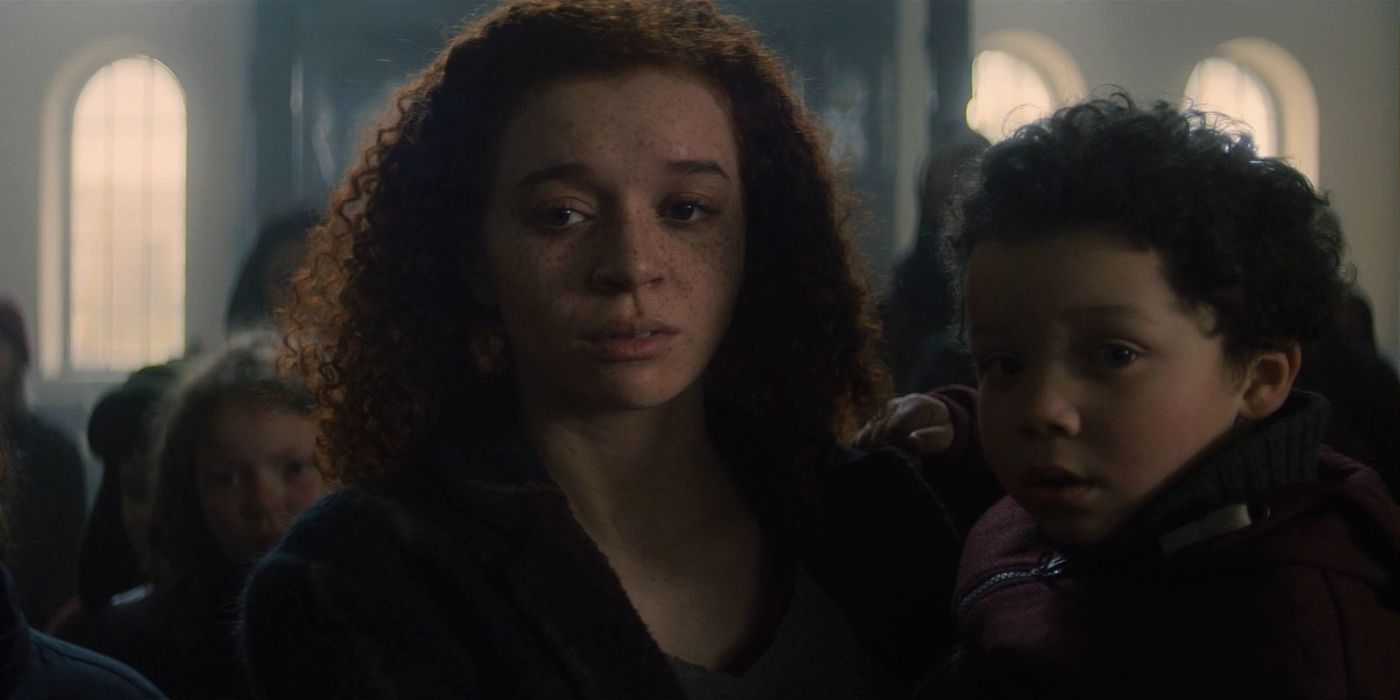
The Falcon and the Winter Soldier was always meant to show Marvel fans what the general political and sociological climate in the MCU was after the events of Avengers: Endgame and how different life before and after the blip turns out to be. However, to do so the show is taking some inspiration from real-world problems that can still be found in the news today.
Perhaps one of the main reasons why The Falcon and the Winter Soldier chooses a more “grounded” approach to its main plot is the fact that its protagonists Sam Wilson and Bucky Barnes are somewhat weaker individuals when compared to the rest of Marvel's godlike heroes, or just literally gods. Sure the Winter Soldier and Steve Rogers are super-soldiers, but that pales in comparison to “the big three” group consisting of androids, aliens, and wizards.
RELATED: The Falcon And The Winter Soldier: Episode 4 Review
This is a trick that, although not unique to Captain America movies, is more used in Cap’s adventures to feed the argument that Marvel’s best heroes and villains lack any superpowers. While Red Skull may indeed be a super soldier, Alexander Pierce is just a nazi in a suit and Zemo’s only power is having sick dance moves. By dialing down on the need for the fancy CGI effects that movies like Iron Man and Doctor Strange love to show (even WandaVision to a lesser degree), it then becomes more plausible for The Falcon and the Winter Soldier to explore more “realistic” villains pursuing the same goals and values seen in history over the last 100 years.

Post-traumatic Stress Disorder among active or retired members of the military has always been a topic that fascinates Hollywood with films like Taxi Driver, Born On the Fourth of July, or The Hurt Locker always being praised for their depictions of this condition. Maybe that’s part of the reason why The Falcon and the Winter Soldier chose to give John Walker’s Captain America/Super Patriot/U.S. Agent story a more modern and relatable twist.
Unlike comic book John Walker, this phony Cap served in the military during a time of war even claiming three medals of honor from serving in Afghanistan with his friend Lamar Hoskins. Nevertheless, as Walker confides to Hoskins, all those commendations came at a steep price the two men never really signed up to pay, and witnessing the horrors of war took its toll on them.

As Wyatt Russell himself claims, his character is there for audiences to hate, but even before going completely haywire due to the unexpected steroid rage of the super-soldier serum and watching his best friend die, writers make sure to give him “proper” motivation for his grueling actions. Despite what they’ve suffered, Hoskins and Walker are still serving, and it doesn’t matter that the latter’s behavior suggests he came back from the war a very different man. He’s still being used by the government for its own benefit rather than being afforded the time to heal the psychological wounds the war left on him.
If Sam Wilson had just run away with Steve Rogers’ shield, The Falcon and the Winter Soldier wouldn’t exist, yet his decision paints him as a man who sees the world not as black or white, but instead in varying shades of grey. In episode four, Sam is the one who tries to negotiate with Karli to look for a common ground that might cause her to relent, almost succeeding until he’s thwarted by Walker.
Rogers’ Captain America was supposed to be a man that represented the best American values from the 1940s and like Baron Zemo points out, there really was no one else like him. However, Rogers eventually found himself struggling to cope with the U.S. government's methods, something even his friend Bucky understood well enough to hide from him the existence of a tortured Black super-soldier in Isaiah Bradley.
Zemo is by all accounts an extremist, something Sam isn’t afraid to easily point out even if he readily denies taking the superhero juice, were he given the chance. Sam’s more nuanced mind is the very reason why the GRC would have never stuck with him as their Captain America, but it’s also why he can strive to talk it out with Karli, even when she could instantly kill him with a single blow.
In a modern world where extreme politics are more prevalent, or at least noisier than ever, Sam is the moderate voice that can reach both ends of the aisle. Captain America has always been Marvel’s most political comic book and even Disney’s sugarcoating can’t look away from that, albeit in smaller doses.

Although heavily hinted in previous The Falcon and the Winter Soldier’s episodes, in “The Whole World is Watching” audiences are told straight upfront by Flag-Smasher boss Karli Morgenthau that her group’s struggle is at its heart a refugee crisis. Karli tells the story of how she grew up without her parents, instead being raised by the Flag-Smasher surrogate mother Donya Madani.
Although Karli speaks with Erin Kellyman’s natural English accent, her character and all of her allies are for all purposes stateless individuals when tells Sam that the Flag-Smashers are made up of a group of people that under normal circumstances she would have been taught to hate. Further proof of this is the palm-shaped hamsa amulet she carries with her, a popular symbol that’s recognized and cherished by Islamic, Christian, and Jewish traditions in a similar manner.
The Flag-Smashers, although increasingly violent and murderous, are the fallout of a world and GRC that cannot handle the consequences of the fictional Blip. Much like the wars, political turmoil, and humanitarian crises that affect the people of South Sudan, Afghanistan, and Syria, the Flag-Smashers (for the most part) and the people they protect are or were at some point innocent bystanders.
Episode four saw Walker and Karli suffer significant personal losses, even Bucky temporarily loses his arm fighting Ayo, the woman that helped him heal his mind. Behind each of these events hides the reality that fictional war is always just as ugly as the real thing.
MORE: Marvel Fans Are Interacting With Sebastian Stan In An Amusing Way

